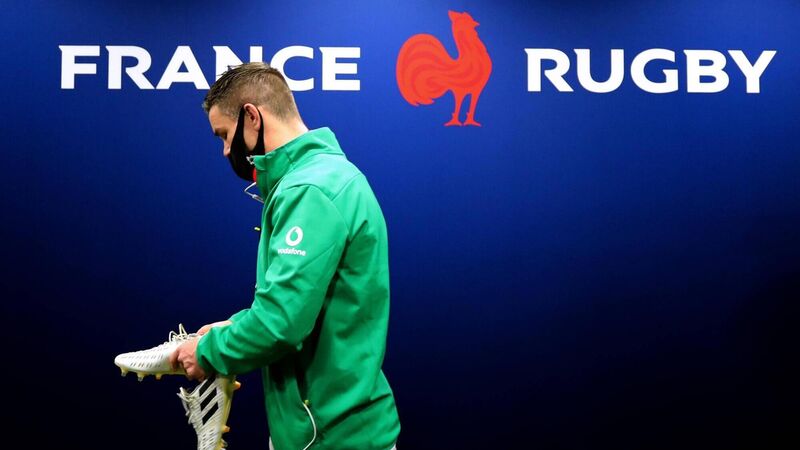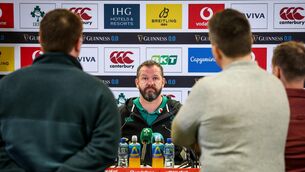Peter Jackson: Take note Johnny, great captains never seem to lose their cool

If Sexton still feels miffed at his treatment late last Saturday night, he could do worse than consider the fate of several less fortunate Test captains and count his blessings, says columnist Peter Jackson. Picture: INPHO/James Crombie
Had he been in a different place at a different time, Johnny Sexton’s glaring strop over his premature exit in Paris would probably have cost him the captaincy.
A game devised by the English and exported to the Empire as recreation largely for the upper classes took a dim view of any overt display of disrespect: ‘Not the done thing, old boy.’ The catch-all phrase, covering a multitude of sins, survived long after the Empire had gone.










